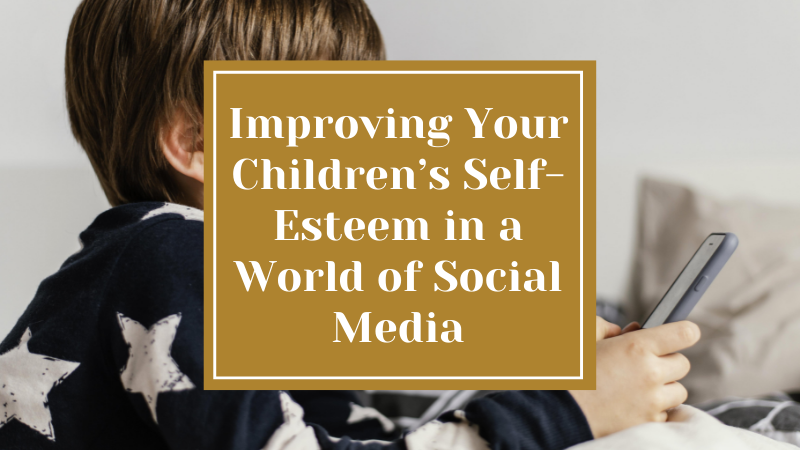Whether you’re young or old, people of all ages are constantly being bombarded with images daily. Not all of these images are negative, obviously, but many of them are. First of all, the media plays a major role in what we see. When you’re watching the latest celebrity show, for example, you may see a woman who looks flawless. She has no wrinkles, the smoothest skin possible, and teeth so perfect, that they even put most dentists to shame.
On top of that, society also plays a major role in how we think about ourselves, and to a lesser extent, what we see. After all, we’re constantly being told what foods to eat and avoid, how to dress, and what it means to be an acceptable human being.
However, notice that many of these media images and even the mindsets of society, don’t impact those who are older. That’s because they already have a set thought process. Seeing images of a flawless celebrity, or being told that they need to lose weight, wouldn’t affect them as much, and they might simply dismiss it.
However, would a young child dismiss it so easily? The chances are very unlikely. Many children have insecurities and problems with their body image. Here are some ideas on how you can improve your child’s confidence so that they aren’t as easily influenced by social media and other external factors.
#1. Social Media
I am so grateful that I was able to grow up in a time when Myspace and Facebook were just barely figuring out what social media should be. Bot now, social media is a new consuming for today’s youth, and it’s often how they communicate with others there are many, many different platforms vying for their attention: TikTok, Snapchat, Instagram, Twitter, and even Facebook, (although I’ve been told Facebook is only for old people now.)
While there are plenty of positive aspects of social networking, it’s just as self-destructive as it is beneficial. Especially when used too much and without regulation. Kids are exposed constantly to unhealthy body images, images of picture-perfect lives, drugs, sex, and rock and roll. (Although, I think the rock and roll is the least of our problems). As an example, notice how many people on Facebook seem to have the perfect life. Does it make you feel a little worse when your friend from college seems to be doing so much better than you? If it’s getting to you, imagine how it feels for your children.
Now, while your Facebook friends may all show that they have an amazing job, a wonderful wife, and the perfect car, as adults we usually know that they are only uploading the absolutely best parts of their lives and that they probably still have bad days and problems like the rest of us.
Children don’t quite understand this though. Instead, they wonder why their lives aren’t as fun, perfect, and glamorous all the time and do damaging things to try to achieve. They may feel that they aren’t as loved if their family can’t give them the same vacations and things that they see on TV. They don’t always have a great idea of what money is. They may also thing think that maybe he/she will never be good or pretty enough and that they’d need to have a flawless image as well. In a way, social media sets unrealistic expectations about how others should feel about their life.
Solution
First of all, it’s important for your children to realize that someone’s profile on Facebook is usually not reflective of their real life. Social media is often a facade where people usually brag about their accomplishments and try to paint the image of a perfect life. When your children realize this, it’ll be easier for them to stop comparing their lives with others.
Lastly, considering how many people are obsessed with social media, your children should go outside and get some fresh air. Instead of living in a social network bubble, meet new people and engage in activities outside the house. Limit the amount of time and access they have to social media. Tell them they can look at it for just one hour a day, and then it’s time to do something else. Purchase phones that don’t have constant access to social apps.
#2. Dealing with Judgemental People
Another reason some children have problems with their body image is that many people in society are often judgmental. After all, first impressions are lasting ones, and many people can be very quick to judge without even getting the chance to know them. This is especially true at school, where kids often tease others and can be very cruel. For example, let’s say there was a kid at school who was a bit overweight. The other kids might tease him/her to the point where they feel they’ll always be fat no matter how much they exercise or eat healthy.
Solution
On the flip side, people aren’t always judgmental. Sometimes, children assume others are going to immediately judge them. On top of that, to impress others, many kids try to be someone their not, and it only makes things worse. As a solution, children need to learn to be themselves in social situations. Help curate situations where your child can feel more confident to be themselves.
#3. Society’s Expectations
As I mentioned before, the expectations of society can cause children to feel insecure about their body image. It’s easy for adults to dismiss what they see on television, but many children might be looking for acceptance when watching TV. Upon seeing the latest model on a reality show, they might latch onto that, and try to develop the perfect body image. Eventually, this could lead to skipping meals or exercising too much, and the child might even think he/she is fat when they’re not.
Solution
Children need to realize that society’s expectations are often unrealistic and that what’s shown on TV usually doesn’t correlate with reality. Many children aspire to be the next fashion model or wish they had the perfect life, like the latest celebrity. However, what goes on behind the scenes is a different story. Overall, it’s important to remember that more often than not, what’s shown on TV is not realistic.
How do you help your children improve their confidence and body image? Share with us in the comments below!



